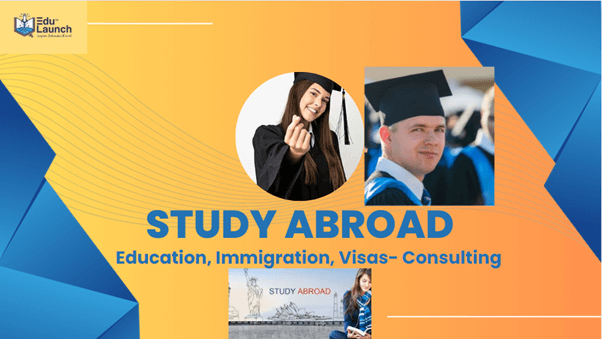How University Study Abroad Programs Benefit Graduates’ Employability.
A recent study by the Institute of International Education found that university study-abroad programs benefit graduates’ employability.
The study found that, of the graduate students surveyed, those who had participated in a study abroad program had a higher rate of employment and a higher salary than those who had not.
The study also found that study-abroad alumni were more likely to be promoted and receive raises more quickly than those who had not studied abroad.
These findings suggest that university study abroad programs can be a valuable asset to graduates’ careers.
- Introducing university study abroad programs and how they benefit graduates’ employability.
University study abroad programs are a great way to gain international experience and develop new skills. They can also improve your employability after graduation.
Employers are increasingly interested in graduates who have international experience. They know that graduates who have studied or worked abroad are more likely to be adaptable, flexible, and open-minded.
They are also more likely to have the language skills and cultural awareness needed for today’s global workplace.
If you are thinking about studying abroad, be sure to research the programs available at your university.
There are a number of options, including short-term programs, semester-long programs, and year-long programs.
Whatever program you choose, be sure to make the most of your experience. Get involved in the local community, take advantage of cultural opportunities, and make new friends. You will be glad you did!

- The skills and qualities graduates obtain through study abroad programs.
Graduates who have studied abroad often have a number of skills and qualities that set them apart from their peers.
These skills and qualities can include:
- The ability to adapt to new environments and cultures.
- The ability to think critically and solve problems.
- The ability to communicate effectively in different languages.
- The ability to work independently and as part of a team.
- The ability to think creatively and innovatively.
- The ability to be open-minded and tolerant of different opinions.
- The ability to be resourceful and take initiative.
- The ability to be confident and self-reliant.
- The ability to be flexible and adaptable.
- The ability to have a global perspective.
- How studying abroad can improve your resume.
If you’re looking to improve your resume, studying abroad is a great option.
It can help you stand out from the crowd and show that you’re adventurous and global-minded.
Employers often look for these qualities in job candidates.
Studying abroad can also give you new skills to list on your resume. For example, if you study language abroad, you’ll be able to say that you are fluent in two languages.
This can be a huge advantage in today’s competitive job market.
So if you’re looking to make your resume more impressive, consider studying abroad. It’s a great way to gain new skills and experience, and it can help you stand out from the competition.
- How to make the most of your study abroad experience.
If you’re like most students, you’re probably anxious about making the most of your study abroad experience.
After all, this is a once-in-a-lifetime opportunity! But don’t worry – with a little bit of planning, you can make the most of your time abroad.
Here are a few tips:
- Make a plan. It’s important to have a general idea of what you want to do and see while you’re abroad. This will help you make the most of your time.
- Get involved in the local community. This is a great way to learn about the culture and make some friends.
- Make time for travel. There are so many amazing places to see in the world – make sure to take advantage of your opportunity to see them.
- Take advantage of the resources available to you. Your school or program provider will likely have a lot of resources to help you make the most of your experience. Make use of them!
- Stay open-minded. It’s important to be open to new experiences and cultures while you’re abroad. Remember – the more you open yourself up to new things, the more you’ll learn.
- The benefits of returning home after studying abroad.
There are many benefits to returning home after studying abroad. One of the most important is that you get to reunite with your friends and family.
This is a great opportunity to catch up on what has been going on in everyone’s lives. You also get to share your experiences from your time away.
Another benefit of returning home is that you get to reintroduce yourself to the job market.
Having new experiences and skills to share can make you a more desirable candidate.
Additionally, you will be up-to-date on the latest trends and technologies in your industry.
Finally, returning home allows you to reconnect with your cultural roots.
You can learn more about your heritage and share your experiences with your friends and family.
This can be a very enriching experience that helps you to grow as a person.







